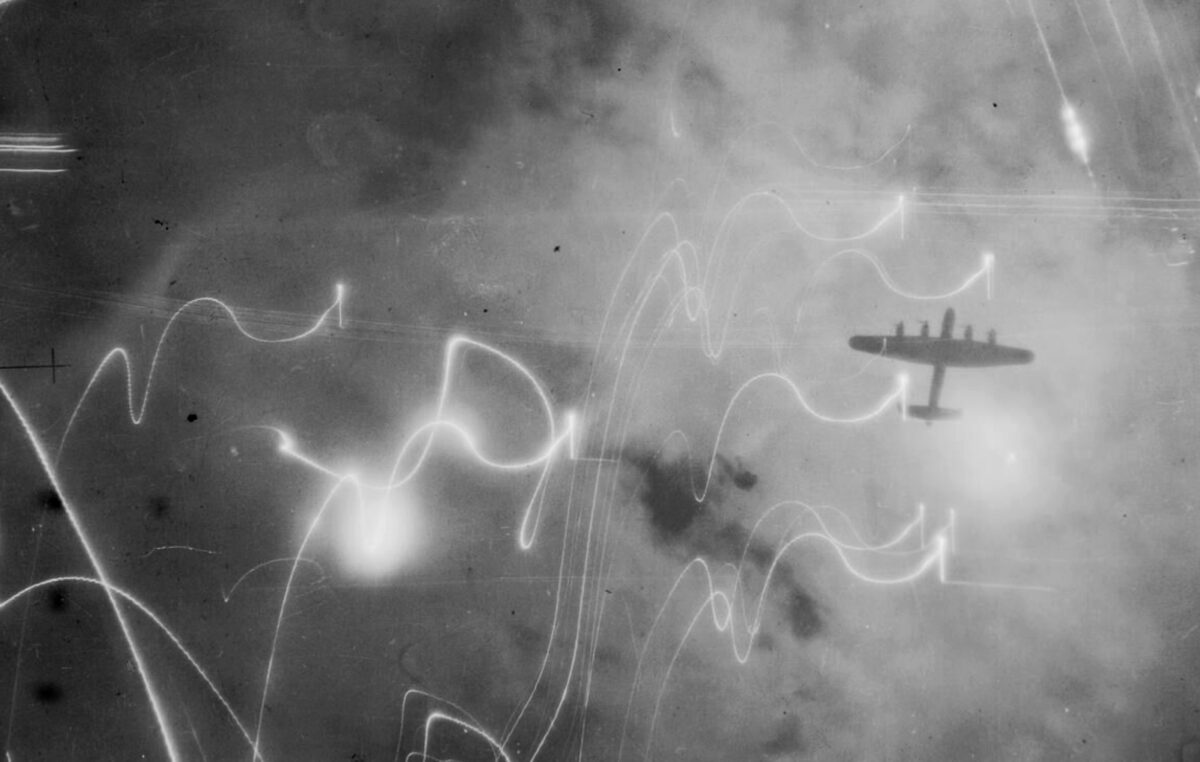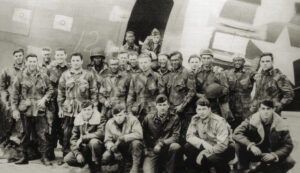“Hello skipper.”
“Hello navigator…Keep weaving, there’s quite a lot of flak coming up falling off a bit low,” came the skipper’s calm voice, crackling over the intercom.
In the early hours of September 3, 1943, the Lancaster bomber crew of ‘F for Freddie’ took off from Langar Airfield in Nottinghamshire, England bound for Berlin. On board for this particular bombing run was BBC correspondent Wynford Vaughan-Thomas and sound recordist Reg Pidsley.
Through pioneering technology of the day, Vaughan-Thomas was able to give the public a remarkable eye-witness account—lending a glimpse into the grim realities of war through the radio broadcast.
Flying into the heart of the Third Reich came with extreme risk, particularly in 1943. Nearly five percent of Lancaster’s were lost during a bombing run. More than 7,000 of the bombers were built during the war, flying upwards of 150,000 sorties, according to the BBC. Indeed, just four months later, the ‘F for Freddie’ and its seven crew members were shot down over the German-controlled city of Stettin, Poland.
In 2018, the BBC used pioneering technology once again—overlaying the recording with a virtual reality experience to recreate the 1943 bomb run over Berlin.
Peter Rippon, editor of BBC Archive, told the BBC that “the authenticity of the audio and the nobility of the characters involved, combined with virtual reality means audiences can now relive [the] past with an intensity not previously possible.”
But whether the audience is watching or listening, the danger is indeed palpable. As the shrill sounds of anti-aircraft shells burst around the weaving Lancaster, Vaughan-Thomas can be heard saying, “that’s a new one. That must have been a heavier flash that sent us rocking.”
Occasionally, the crew can be heard cutting into Vaughan-Thomas’ commentary: “I can say there are about 300-400 searchlights easy,” the skipper relays as ‘F for Freddie’ perilously makes its way to Berlin.
With just an hour flight left to the German capital, the war correspondent notes, “they are trying to light us up again, make us easy prey.”
The only moment that the crew’s calm demeanor is punctuated is when they encounter a German Ju-88C. Sounds of machine gun fire can be heard before a chorus of excited voices and the line “he’s got him boys, right in the bloody middle!” However, the moment’s excitement quickly subsides as the pilot interjects, “okay, don’t shout all at once.”
An increasingly illuminated sky marked the plane’s arrival over Berlin. Seemingly unruffled, the navigator drops the plane’s payload before the pilot quickly tries to maneuver out of the glare of the city’s searchlights. “We’re speeding out of it as fast as we can,” Vaughan-Thomas records with some relief. “We’ve left the whole boiling cauldron behind us.”
After making the long journey home over occupied Europe, the tiny blip on the horizon marking the English coastline was a joyous sight, with one crewmember remarking “that’s a sight for sore eyes.”
Listen to the full BBC recording here.





